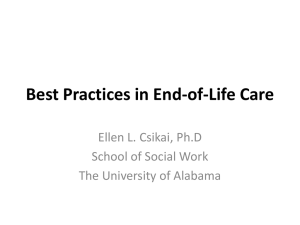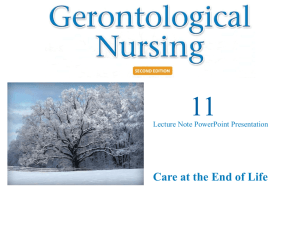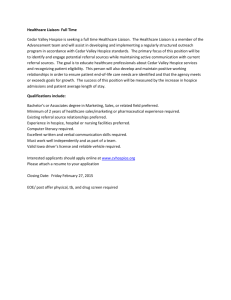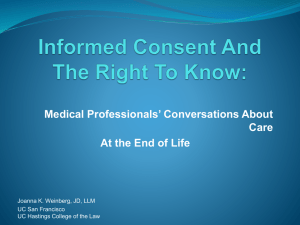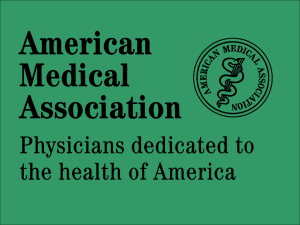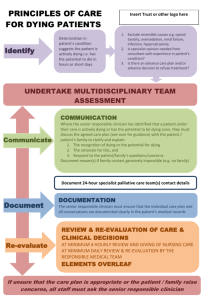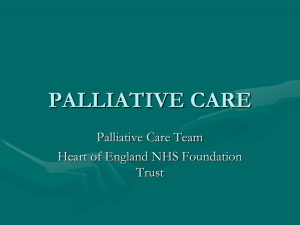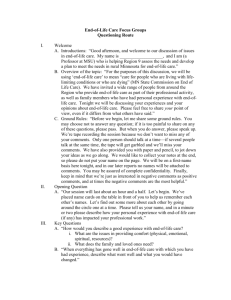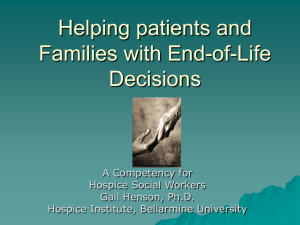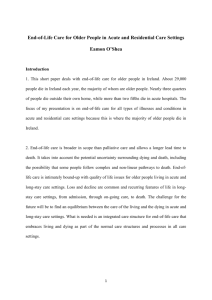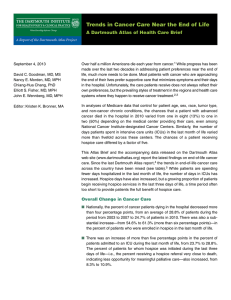here
advertisement
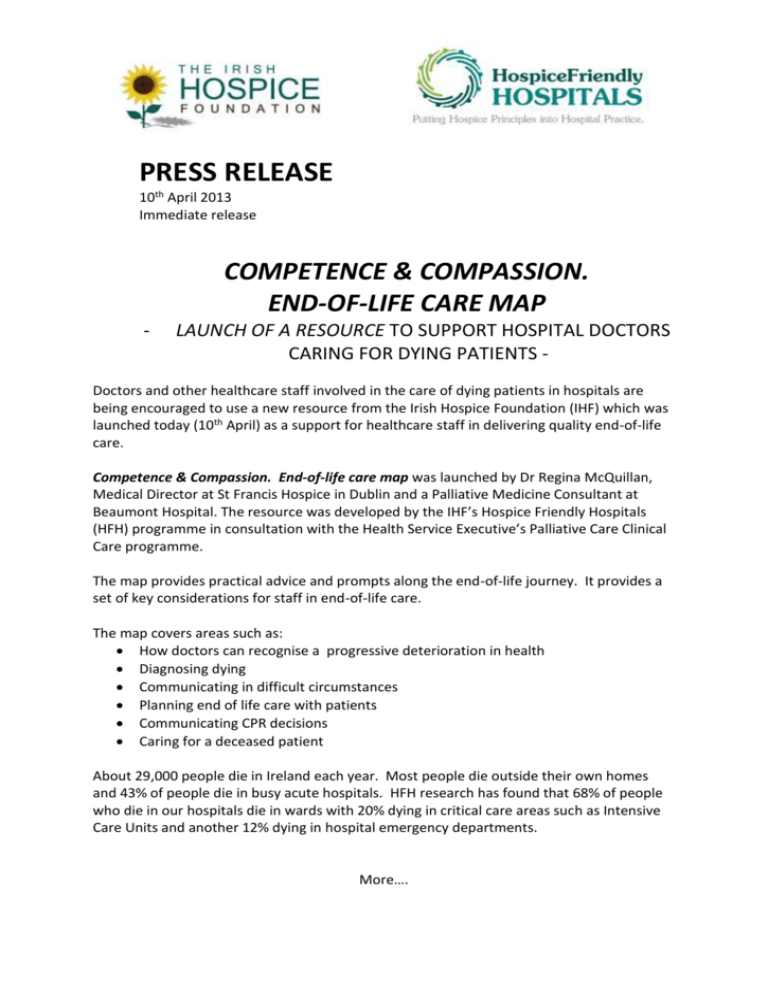
PRESS RELEASE 10th April 2013 Immediate release COMPETENCE & COMPASSION. END-OF-LIFE CARE MAP - LAUNCH OF A RESOURCE TO SUPPORT HOSPITAL DOCTORS CARING FOR DYING PATIENTS - Doctors and other healthcare staff involved in the care of dying patients in hospitals are being encouraged to use a new resource from the Irish Hospice Foundation (IHF) which was launched today (10th April) as a support for healthcare staff in delivering quality end-of-life care. Competence & Compassion. End-of-life care map was launched by Dr Regina McQuillan, Medical Director at St Francis Hospice in Dublin and a Palliative Medicine Consultant at Beaumont Hospital. The resource was developed by the IHF’s Hospice Friendly Hospitals (HFH) programme in consultation with the Health Service Executive’s Palliative Care Clinical Care programme. The map provides practical advice and prompts along the end-of-life journey. It provides a set of key considerations for staff in end-of-life care. The map covers areas such as: How doctors can recognise a progressive deterioration in health Diagnosing dying Communicating in difficult circumstances Planning end of life care with patients Communicating CPR decisions Caring for a deceased patient About 29,000 people die in Ireland each year. Most people die outside their own homes and 43% of people die in busy acute hospitals. HFH research has found that 68% of people who die in our hospitals die in wards with 20% dying in critical care areas such as Intensive Care Units and another 12% dying in hospital emergency departments. More…. 2. Dr Regina McQuillan stated: “Healthcare staff involved in specialist palliative care provide care for patients with complex conditions. Not all patients who die in our hospitals will require specialist support. But every dying person can benefit from the hospice philosophy of care which emphasises the physical, emotional, social and spiritual wellbeing of the patient and which can be delivered by all doctors and healthcare staff. The end-of-life care map will be a valuable resource for hospital doctors of all specialties who find that their patient is at the end of his or her life. It provides practical advice they can consider in their efforts to ensure that their patient has a comfortable death and their family receives the support they need.” Sharon Foley, CEO of the IHF, commented: “The end-of-life care map is one of a number of resources which our Hospice Friendly Hospitals programme has developed. They have all been very well received by hospital staff who are committed to enhancing the dignity of dying patients and their families. The map was prepared through rigorous research and in consultation with a wide range of staff including specialist palliative care so as to ensure that staff are prepared to support a patient and their family when they are most vulnerable. It is part of an ongoing effort to ensure that end-of-life care goes from the margins to the mainstream in our hospitals.” Jackie Crinion, Acting Manager of the HFH Programme, commented: “The end-of-life care map is not designed to be read as a stand-alone document or to be prescriptive on an individual patient’s care. Instead it provides a set of key considerations for staff in end-oflife care. The development of this tool itself was prompted by our work in hospitals throughout Ireland where staff need resources to deliver good care to dying patients and their families.” Launched in 2007, the HFH programme aims to put hospice principles into hospital practice. Some 30 acute hospitals across Ireland and a further 20 care settings in the Dublin area are engaged directly in the work of the Programme. Another 170 sites have taken part in various training initiatives of the HFH programme. - Ends – For more information, please contact: Caroline Lynch, Head of Communications and Advocacy, The Irish Hospice Foundation. Tel: (direct line) 01-6730041 (mobile) 087-1237586 (email) Caroline.lynch@hospicefoundation.ie
